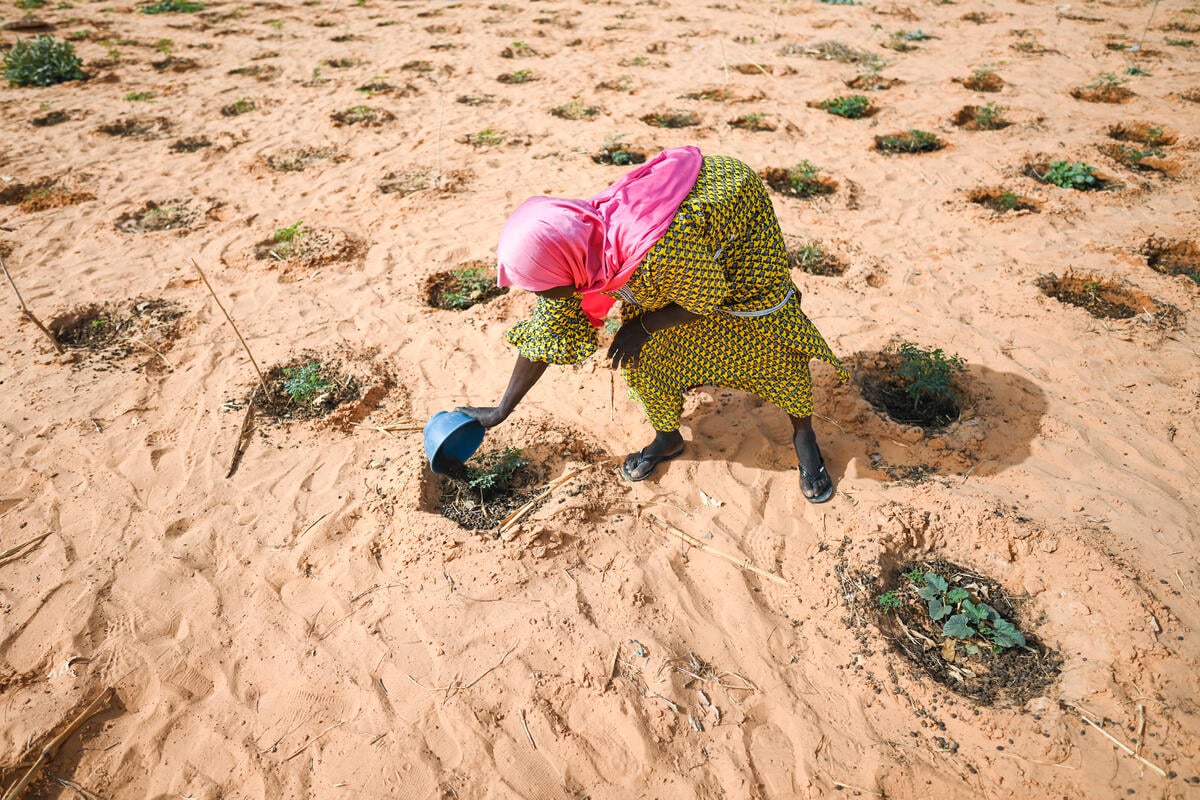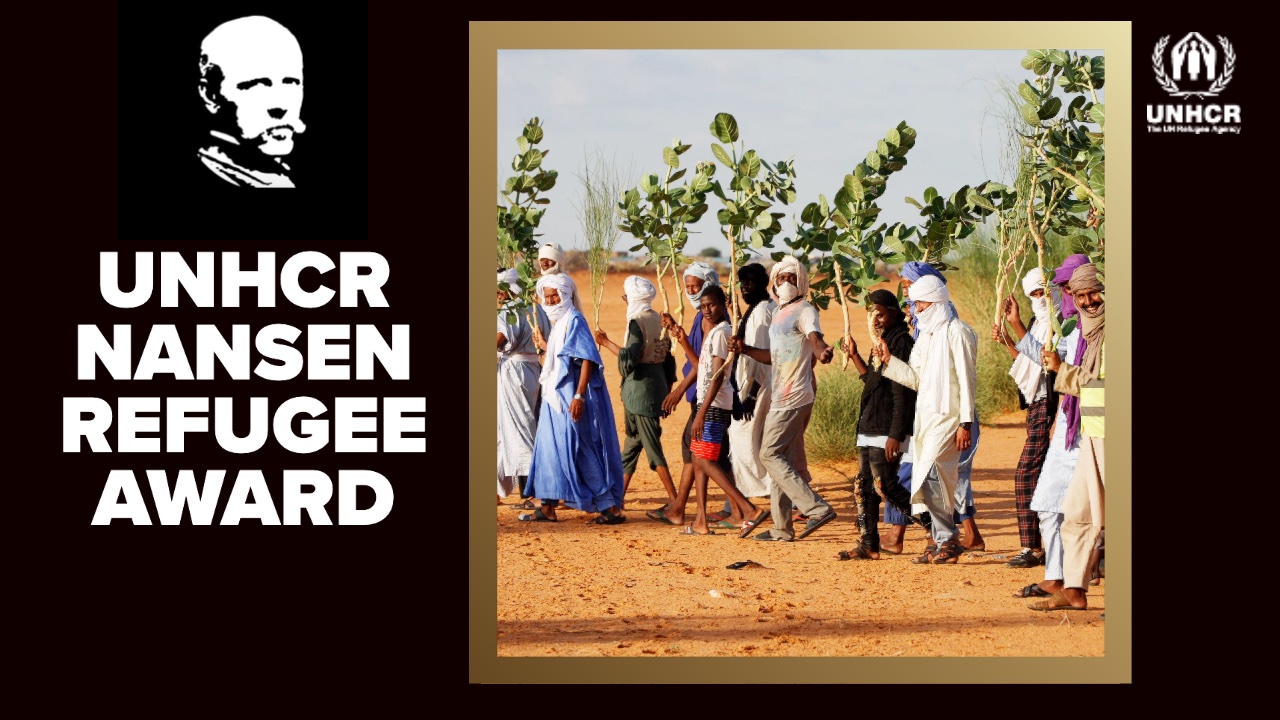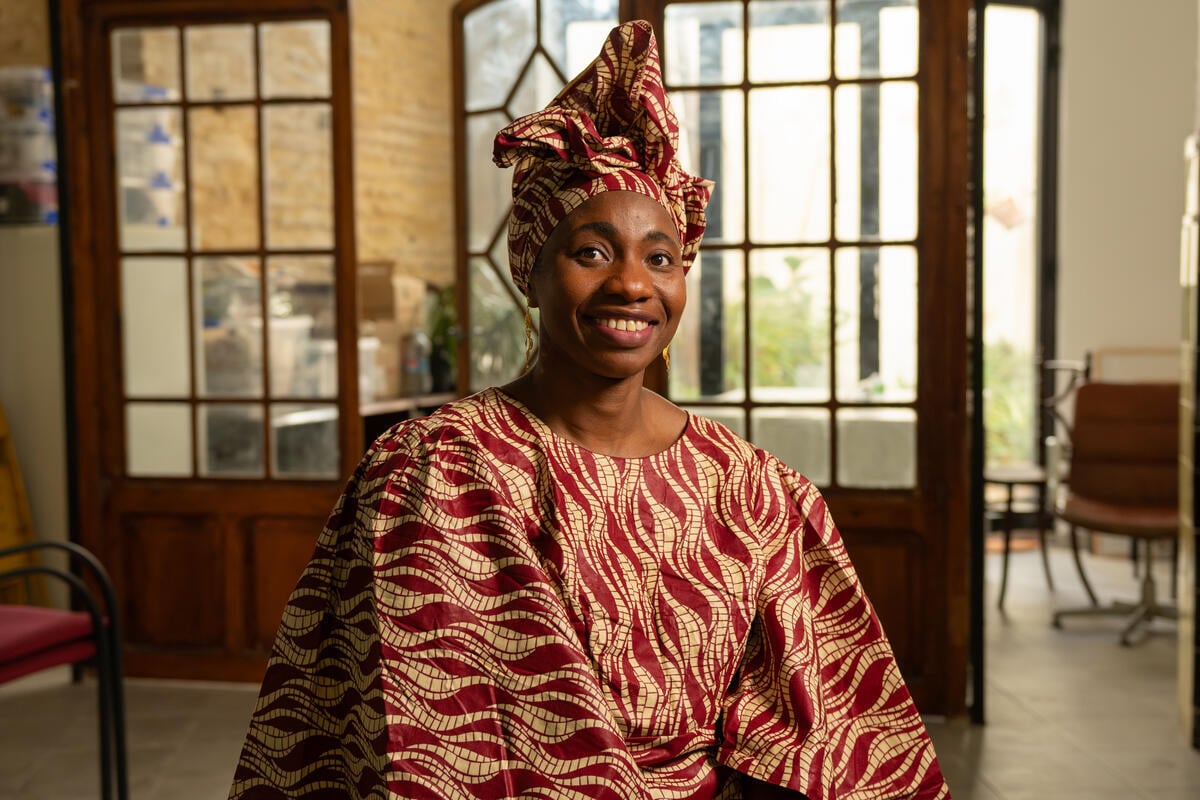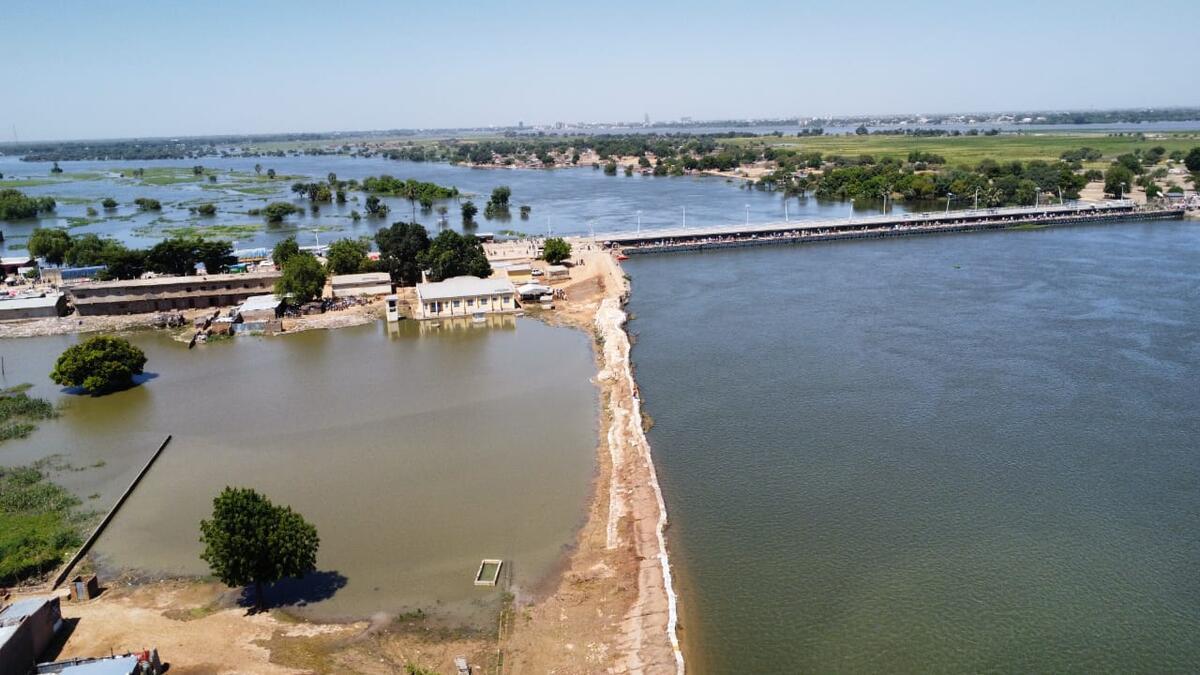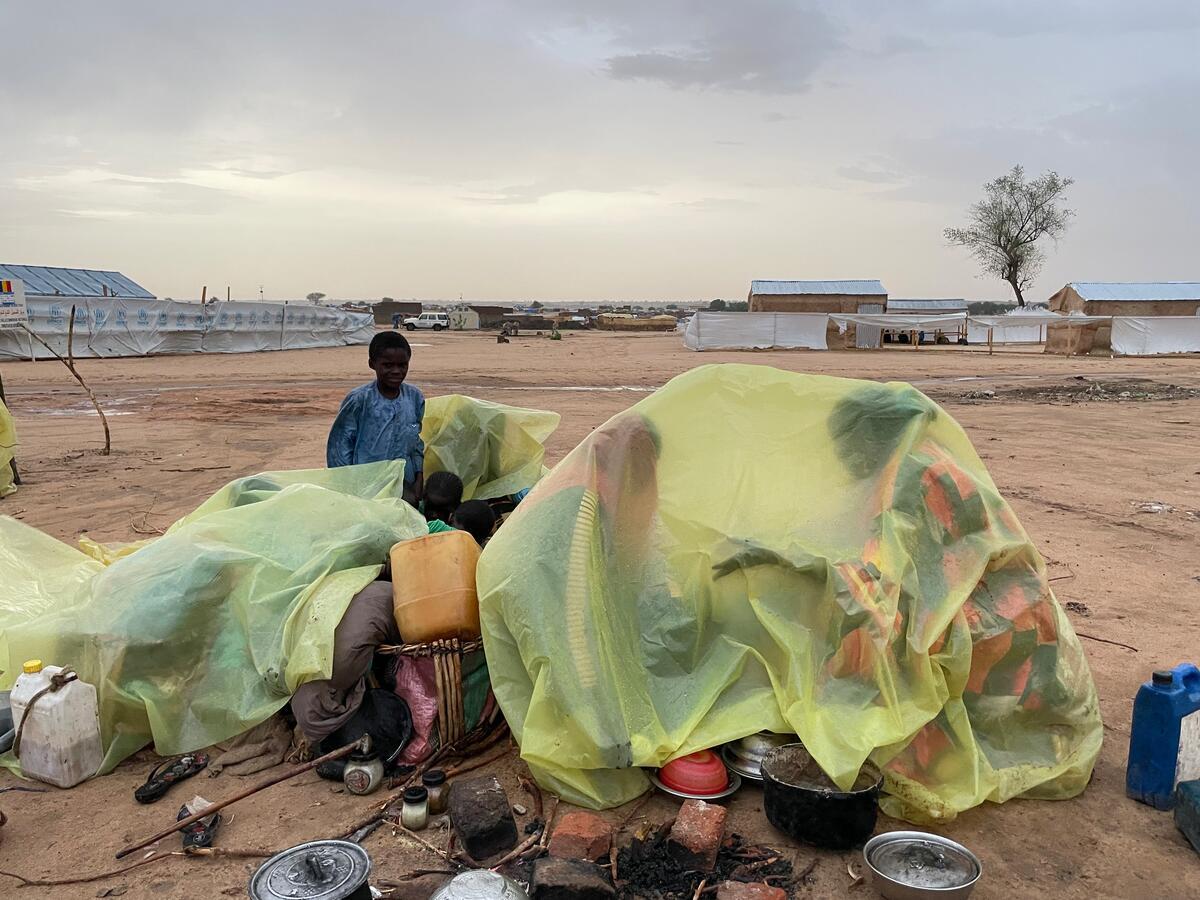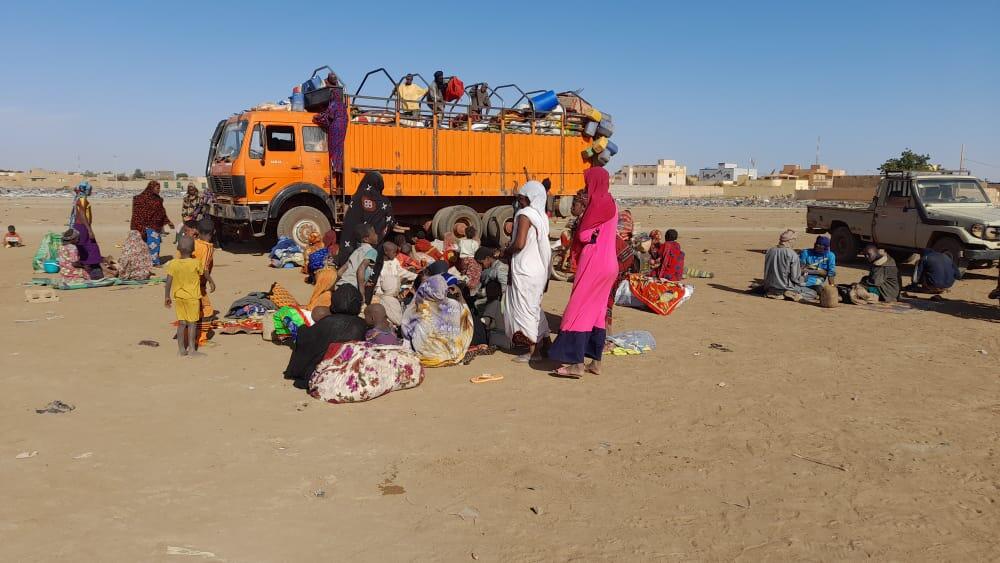UNHCR urgently reinforcing staff and resources for Mali in anticipation of further new displacement
UNHCR urgently reinforcing staff and resources for Mali in anticipation of further new displacement
As military operations continue in northern Mali, UNHCR is reinforcing its teams across the region to assist the internally displaced persons and refugees. Yesterday (Thursday) our budget committee met to approve deployment of dozens of specialists. In Burkina Faso, we have sent staff from Ouagadougou to monitor the border and to boost assistance in the refugee camps in Burkina's Sahel administrative region. Our new planning basis allows for additional displacement of up to 300,000 people inside Mali and 407,000 into neighbouring countries.
As of yesterday, displacement across borders has been rising steadily - with 2,744 Malian refugees now having arrived in neighbouring countries since fighting and airstrikes started on January 10. Of these 1,411 are in Mauritania while Burkina Faso has received 848 new refugees and Niger 485. Including these numbers and those displaced since the Mali crisis started a year ago there are now 147,000 Malian refugees in neighbouring countries (55,221 in Mauritania, 52,875 in Niger, 38,776 in Burkina Faso, an estimated 1,500 in Algeria, 26 in Guinea, and 20 in Togo). At the same time, close to 229,000 people are now displaced inside Mali according to the Commission on Population Movements, including some 8,700 who have fled the north to safer areas (mainly Bamako).
In Burkina Faso a UNHCR team visited the entry point of Inabao on Wednesday, in Sahel region and only a few kilometres from the border with Mali. They found that some 265 Malian refugees had crossed in the past days from Intahaka, N'Tillit and Dorage towns and surroundings areas in the Gao area of northern Mali. The refugees said they fled the recent military intervention, the lack of any means of subsistence, and fear of the strict application of Sharia law. They reported having witnessed executions and amputations, and mentioned that large amounts of money are being offered to civilians to fight against the Malian Army and its supporters. According to the accounts from refugees there are children among the rebel fighters. People spoke of family members having disappeared.
Refugees are reaching Burkina Faso using public transportation, paying the equivalent of $US50 for the trip - for many, equivalent to more than a months earnings. New arrivals are mainly Tuareg women and children. They said that more people, including their husbands and fathers, are on their way to Burkina Faso by foot, many using donkeys or local transport, and many bringing livestock with them. Despite on-going insecurity in northern Mali in recent months, they say that people have delayed fleeing Mali to allow the men to take care of businesses and animals.
Newly arrived refugees in Burkina Faso are being transported further inland to Goudebou camp, for their safety and because of proximity to the border. For the same reasons we are continuing relocation of people away from camps and sites at Ferrerio and Gandafabou. Refugees are being moved to camps near the towns of Dori and Djibo. As of today, we have relocated 4,169 Malian refugees in 14 UNHCR convoys to camps near Dori and Djibo towns. Some 6000 others remain to still be moved.
In Niger, refugees who fled their homes last year and are staying in UNHCR-managed camps are telling us that they are worried about family members who have remained in northern Mali, including in the Menaka, Anderamboukane, and Ansongo areas. Most of the new arrivals have been at the Mangaize and Tabareybarey camps, as well as in Banibangou and Tillia areas. Refugees say people in conflict areas are having difficulties leaving because of a lack of transportation. Truck drivers fear being mistaken by military airplanes for rebel groups moving from Mali to Niger. Refugees say that hopes that the new military intervention will be short-lived are causing some to wait instead of fleeing. Meanwhile, UNHCR continues to provide help to the 52,875 refugees in camps and sites in Mangaize, Banibangou, Ayorou, Abala and Tillia areas.
For further information on this topic, please contact:
- In Dakar (regional) Helene Caux on mobile + 221 77 333 1291
- In Burkina Faso: Hugo Reichenberger on mobile + 226 66 61 94 94
- In Niger: Charlotte Arnaud on mobile + 227 92 19 19 03
- In Mauritania: Nada Merheb on mobile + 222 33 49 26 26
- In Paris: William Spindler on mobile: +33 62 316 1178
- In Geneva: Adrian Edwards on mobile +41 79 557 91 20


